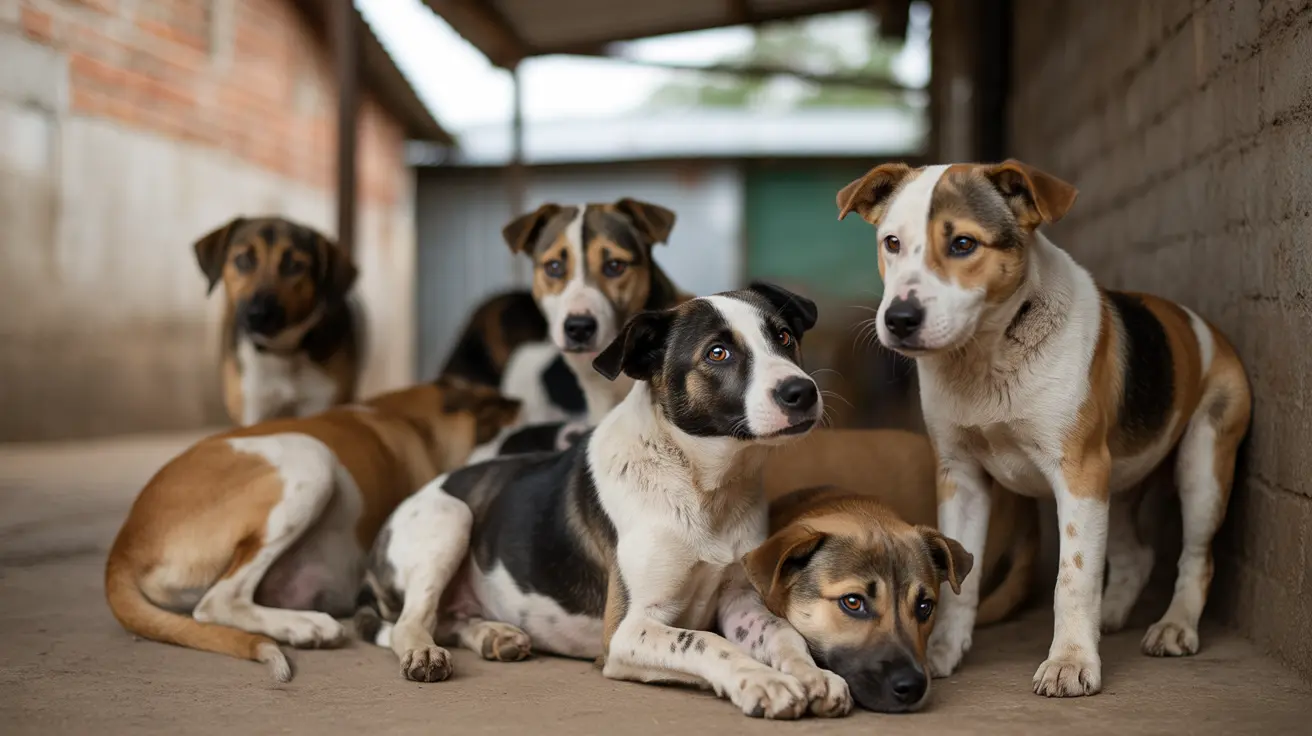Commercial Dog Breeding Laws and Enforcement
The incident has brought attention to the critical gaps in commercial breeding regulations and their enforcement. While the USDA and North Carolina state agencies have established guidelines for animal care and facility maintenance, the discovery of such severe violations demonstrates the ongoing challenges in preventing animal cruelty.
Current Regulatory Framework
North Carolina's approach to puppy mill regulation has faced scrutiny, particularly with recent legislative developments. The enforcement of existing laws remains a complex issue, with various agencies sharing responsibility for oversight and inspection of commercial breeding facilities.
Puppy Mill Dog Health Issues
Dogs rescued from the Raleigh facility exhibited numerous health concerns common to puppy mill environments:
- Matted fur and poor grooming
- Dental problems
- Skin conditions
- Signs of neglect
- Behavioral issues from lack of socialization
Impact on Animal Welfare
The conditions discovered at this facility represent a broader pattern of concerns in commercial breeding operations. The physical and psychological effects on the dogs often require extensive veterinary care and rehabilitation efforts.
How to Support Rescue Efforts
Those interested in helping can take several meaningful actions:
- Support local animal rescue organizations
- Consider adoption instead of purchasing from pet stores
- Report suspected puppy mill operations to authorities
- Advocate for stronger animal welfare legislation
Shelter Impact and Community Response
The rescue has placed significant pressure on local animal shelters and rescue organizations working to rehabilitate and rehome the affected dogs. The community's response highlights the importance of supporting these organizations in their mission to protect animal welfare.
Frequently Asked Questions
What are the signs that a dog was rescued from a puppy mill and how can I help these animals?
Dogs rescued from puppy mills often have matted fur, skin and dental issues, and appear anxious or fearful due to neglect and poor living conditions. Helping involves supporting reputable rescues and considering adoption over purchasing from pet stores linked to puppy mills.
How common are puppy mills in North Carolina, and what was involved in the recent Raleigh puppy mill rescue?
North Carolina has a history of puppy mill operations; the recent rescue in Raleigh freed 101 dogs from filthy, overcrowded conditions where many suffered health problems. This rescue is part of ongoing efforts to combat commercial breeding cruelty in the state.
How can consumers prevent supporting puppy mills when looking to get a dog?
Consumers should avoid buying puppies from pet stores or unverified breeders, instead adopting from shelters or reputable rescue organizations. Public reports like the Humane Society's "Horrible Hundred" help identify breeders to avoid and raise awareness about inhumane commercial breeding.
Conclusion
The Raleigh puppy mill rescue serves as a stark reminder of the importance of responsible breeding practices and effective regulatory oversight. As investigations continue, the focus remains on ensuring the recovered dogs receive proper care while working toward preventing similar situations in the future. The incident underscores the crucial role of public awareness and support in combating inhumane breeding practices and promoting responsible pet adoption.






